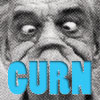[youtube=http://www.youtube.com/watch?v=Frj6jSQeKtE&feature=player_embedded#]
A Brief History of Lee Scratch Perry, Jamaica’s Musical Shaman
By David Katz
MORE AFTER JUMP
A complex and contradictory being, Lee Scratch Perry is one of the most important creative, artistic and musical figures to emerge in the latter half of the 20th Century. He is a devout Rastafarian that believes in extraterrestrials, has proclaimed his children angels in the literal sense, and advocates black supremacy and an end to taxation while living with a wealthy European wife in Switzerland. The sonic innovations he fostered at his Black Ark studio in Kingston during the 1970s have spawned immeasurable changes to popular music worldwide, and he has directly influenced numerous important figures active in other genres, including everyone from Paul McCartney and Brian Eno to the Clash, the Beastie Boys and Jay Z. He also nurtured Bob Marley when the singer was relatively unknown, forming an unbreakable master-student bond that lasted to the end of Marley’s lifetime. The work Perry produced with Marley is among the most outstanding of their respective careers, including the immortal Soul Rebels and Soul Revolution albums, plus unique singles such as Jah Live, Punky Reggae Party and Rastaman Live Up. Though he once claimed to have started life on Jupiter, Perry was born into a poor family in Kendal, a neglected hillside town in rural Jamaica. In the early 1960s, whilst working in road construction, divine voices directed him to the capital, so he duly moved to Kingston to pursue a musical career, helping to precipitate every major change of style on the island, from the pre-ska days before independence to the golden age of roots reggae at the end of the 1970s. Perry scored his first significant hits with popular instrumentals in the late 1960s, such as Return of Django and Man From MI5, and, after a spell of hits with the Wailers that included the original versions of Duppy Conqueror, Small Axe and Soul Rebel, began experimenting with dub techniques, leading to the album Blackboard Jungle Dub, one of the first-ever full-length dub LPs.. He reached broader audiences during the late 1970s through hit records such as Max Romeo’s War Ina Babylon and Junior Murvin’s Police And Thieves, which was covered by British punk group, the Clash, who approached Perry soon after for assistance with their third single, Complete Control.
Meanwhile, the Black Ark became a focal point for radical Rastafari consciousness and political insurrection, until a drastic personal metamorphosis saw Perry change focus: he closed the Black Ark, covering the walls with graffiti and giant X’s (and ultimately burning it down), to focus more concretely on serving the Almighty through word, sound, and sculpture. The stream-of-consciousness, interstellar proclamations that became Perry’s subsequent obsession brought him in line with other renowned Afrofuturist musical figures, such as Sun Ra and George Clinton, though some prefer to think of Perry as the Salvador Dali of reggae for his unique vision and excessive character traits.
Thereafter, Perry became a wandering soul, cutting widely varying psychedelic dub recordings in various locations, including the Bahamas, Holland, and the UK, where he spent much of the 1980s, all the while continuing to experiment with sound. Following notable work with inventive producers Adrian Sherwood and Mad Professor, Perry’s long-term settlement in Switzerland brought increased personal stability, and in recent years, Perry finally began to receive the belated recognition he is due. Now in his early 70s, Perry continues to record, perform and collaborate widely, branching into the realm of fine art through work with British painter Peter Harris. Although no longer a record producer in the conventional sense, his recorded output continues to offer surprising and unique styles that are certainly ahead of their time.
A Brief History of Lee Scratch Perry, Jamaica’s Musical Shaman
By David Katz
For this Spring season, Lee Perry has collaborated with Supreme on two T-Shirt designs featuring his written word and his original artwork. Available in-store on March 4th. Available in Japan on March 6th.
David Katz is author of People Funny Boy: The Genius of Lee Scratch Perry and Solid Foundation: An Oral History of Reggae.
(Via Supreme)
Peter Harris & Lee Scratch Perry
 Don't Watch That
Don't Watch That
